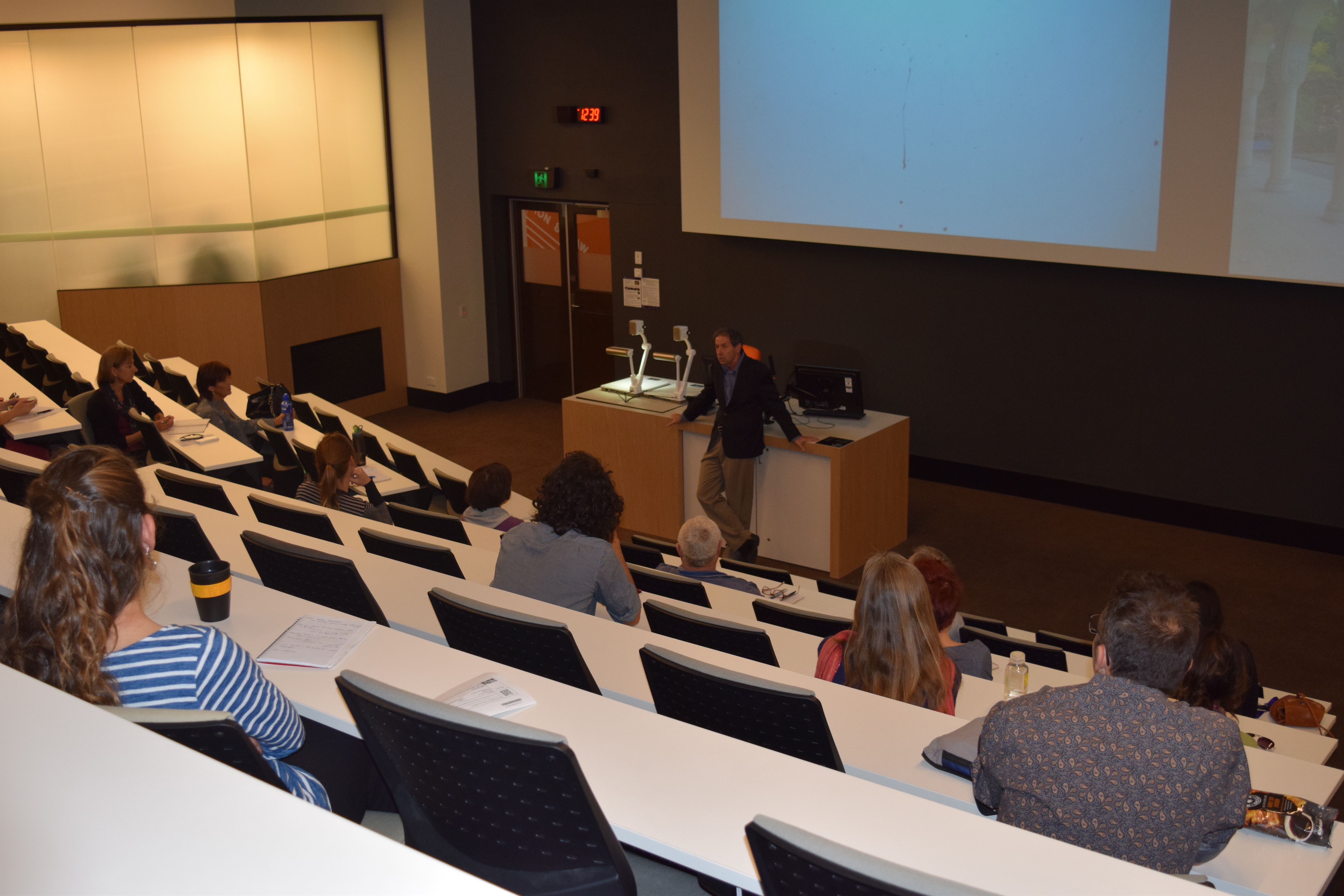 Sustainable investment is a hot topic at the moment, particularly in the tertiary sector. But what’s the relationship between investment and climate change? At September’s Green Office Update Session, Professor John Quiggin, a prominent research economist and ARC Australian Laureate Fellow from UQ’s School of Economics, tackled this increasingly important question and yielded some fascinating insights.
Sustainable investment is a hot topic at the moment, particularly in the tertiary sector. But what’s the relationship between investment and climate change? At September’s Green Office Update Session, Professor John Quiggin, a prominent research economist and ARC Australian Laureate Fellow from UQ’s School of Economics, tackled this increasingly important question and yielded some fascinating insights.
Professor Quiggin began by discussing the current state of investment and climate change, both in Australia and abroad. He then explored, and responded to, common arguments against divestment from fossil fuel companies.
The first of these is carbon capture and sequestration (CCS), which is a ‘dead duck’, according to Professor Quiggin—although CCS is generally considered a viable option for reducing carbon emissions in Queensland, it still relies on exploiting non-renewable coal resources. A better solution, argued Professor Quiggin, would be to decarbonise electricity and transition to a renewable economy.
Another common argument against divestment is the idea that companies keen to maintain a diversified investment portfolio will be reluctant to divest from fossil fuels, given Australia’s market concentration. But, countered Professor Quiggin, investors who want to hold shares in fossil fuel companies must consider the long-term risks and sustainability implications associated with this. Diversification is a risk management technique that entails having a variety of investments within a portfolio, and for those companies that want a diversified portfolio for risk management reasons, investing in fossil fuel companies doesn’t make financial sense. It’s too big a risk—the price of coal has dropped, and the mining boom is over.
Perhaps the ultimate question to ask of this issue is whether fossil fuel divestment will make a difference to climate change—and according to Dr Quiggin, the answer is yes. All the big development and commercial banks now no longer support fossil fuels, and universities and institutions in Australia and internationally are increasingly choosing to divest. These decisions are having knock-on effects: the Adani Carmichael coalmine has failed to receive the financial backing necessary to proceed, since all major financial institutions have turned them down; protests and the rising divestment campaign also stopped the Keystone pipeline in Canada from going ahead.
A big thank you to Professor Quiggin for exploring this important issue and giving our Green Office Representatives plenty to think about. Read Professor Quiggin's website & commentary to stay up to date with this issue.



